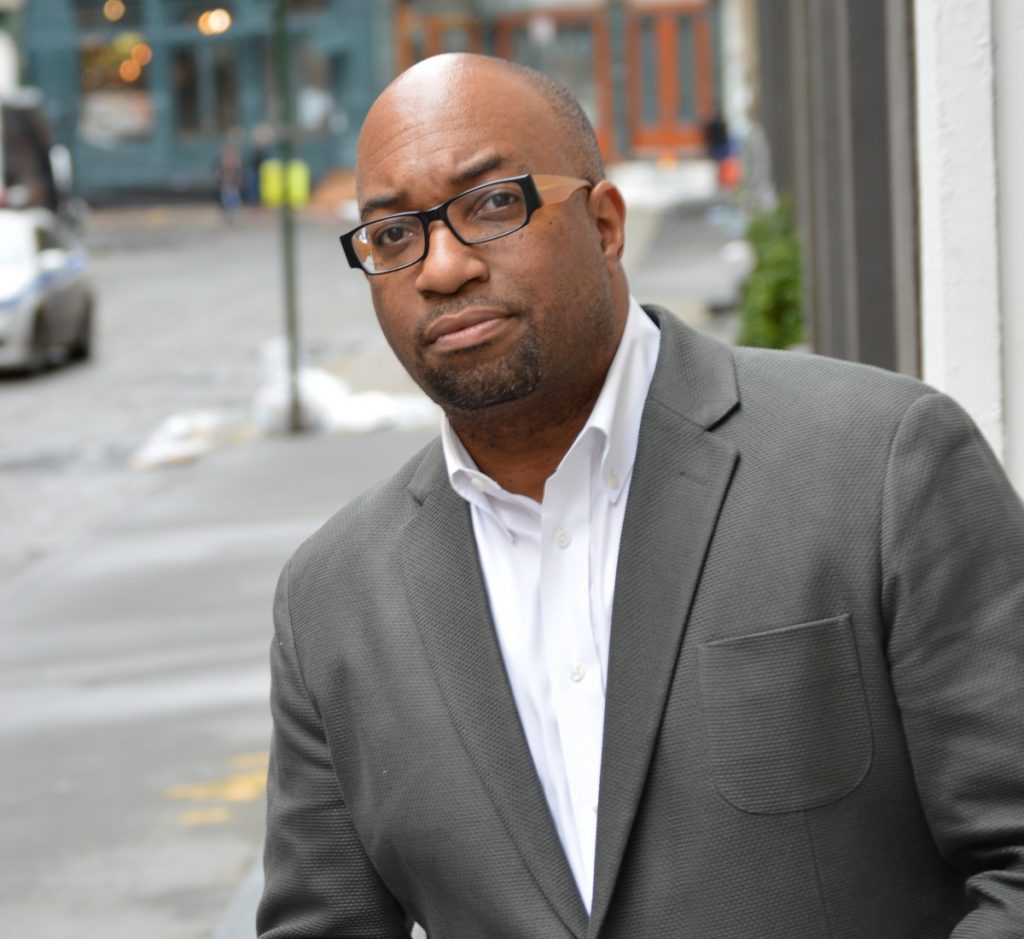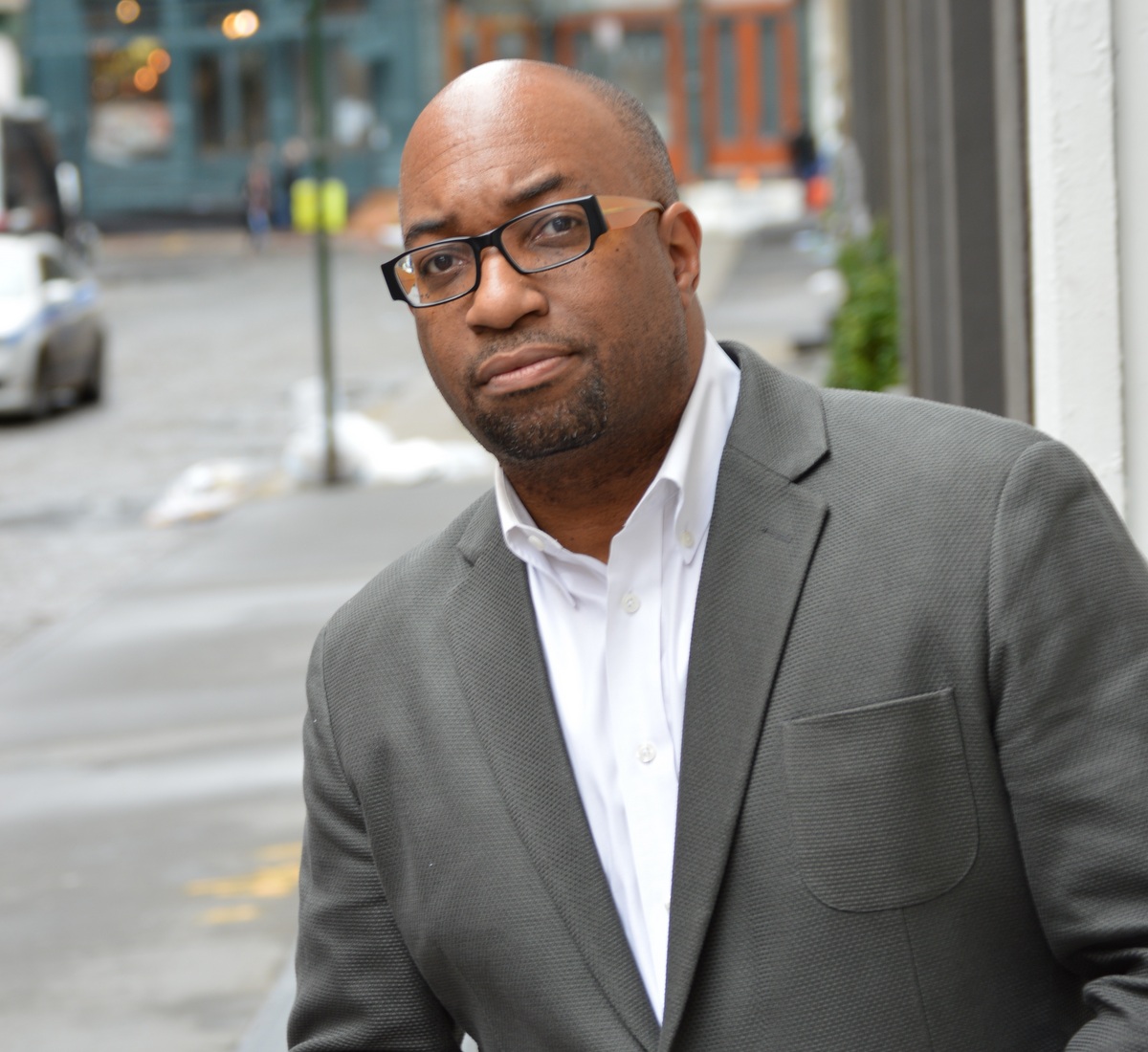[ad_1]
By Tilesha Brown, Special to the AFRO
22 years ago, New York Times Bestselling author, Kwame Alexander, started a publishing company in the basement of his mother’s home on St. Paul Street in North Central Baltimore. It was the early 90s, he was fresh out of college, and he was already cracking the code for how to get children to read more and to change the world with their words.
Of course, this was before the world became transfixed by 60-second Instagram posts and 280-character Twitter rants, so perhaps the real feat is that over two decades later… he’s still doing it. That’s why on September 13 Baltimore’s CityLit Project is honoring Alexander with the Chic Dambach Award for Service to the Literary Arts.

When asked how it felt to get the call, he starts at the beginning, describing it as an extraordinary full-circle moment. It was a moment in the beginning of his career, after graduating from Virginia Tech, when Kwame moved to Washington, D.C., but quickly relocated to Baltimore after his mother suggested a job that might be a great fit for him. It was a job that would eventually lead to him being nicknamed the “Willy Wonka of children’s publishing.”
“My mom was a literary specialist, so she got me a job going into Head Start centers around Baltimore modeling read-alouds and instructing teachers on how to teach reading to their kids,” he tells the AFRO. “Seeing the response from them and getting that feedback from students and teachers… that was my foray into working with students directly- interacting and trying to change their world through the power of words.”
He would go in reciting poetry to the kids and reading stories with animated voices— making the characters jump off the page. After hours, though, he was free to dive head-first into a burgeoning Baltimore arts scene. According to Alexander, the town was full of starving artists with big dreams and the energy was ripe for them to create their own outlets. While living in the city, he wrote his own book of poems, put on poetry open mics and hosted literary events.
“We really thought our artwork and our poetry could change the world,” he said, “We loved our art, we practiced it, and we wanted to be really good at what we did.”
Over the next two decades, he continued to write, authoring 28 books, including children’s novels Booked, Solo and Rebound. And this year, the New York Times dubbed him the “Willy Wonka of children’s publishing.” His books, writing workshops and international charitable efforts give him the opportunity to travel around the world year-round enticing children, not with golden tickets or candy-coated dreams, but with hard-hitting, purpose-driven poetry and prose.
Alexander admits that, while when he first heard the nickname he was worried that it meant people weren’t taking him seriously, he now gets that this whimsical approach to getting children involved in storytelling is part of his appeal.
“Part of my life’s work is to be creative, to be fun, and to be functional all at the same time,” he says passionately, “And so I think maybe that does describe me. I’ve got this mixture of fun and functionality… of cool and culture… of whimsy and hopefully genius.”
And it’s true. At his “literary pep rallies” and his workshops, aptly called “The Write Thing,” Alexander connects with kids in a way that is both inspiring and other-worldly. He says that it’s something he learned from his work inside the Head Starts in Baltimore and also from Nikki Giovanni while attending Virginia Tech.
“It’s this idea that I’m going to do whatever’s necessary,” he says, “Ultimately, I want kids to imagine a better world. I think I’ve figured out a way to do it and that starts with me being willing to take that leap, take that risk, put myself out there… and hopefully, in that process, the kids will pick up on that and begin to take those leaps, take those risks, and feel in a similar way.”
All of his books, including the Newbery Award-winning novel, Crossover, tackle real life through the lens of teenagers. He captures the rough emotions of those highly developmental years through sports, music and culture. And if the first chapters of his next book, Swing, are any indication, it is no exception, though he admits that it was his most challenging book to write thus far.
“I wanted to write about the lives of Black boys and how they’re being removed from the Earth like sand in a windstorm,” he says. “I wanted to write about that and I wanted to do it in a way that was transformative and not cliché. I wanted to write about love. I wanted to write about social justice. I wanted to write about jazz. I wanted to write about baseball. And I wanted to write about all of these things in one book.”
It is for bold literary choices like this one that CityLit has decided that Alexander exemplifies the traits deserving of this award for “significantly elevating the profile of literary arts and nourishing the culture of literature…”
Alexander has come a long way since his humble beginnings in Baltimore. He has received The Coretta Scott King Author Honor, The Lee Bennett Hopkins Poetry Prize, three NAACP Image Awards, and the 2017 Inaugural Pat Conroy Legacy Award. He is the founder of VERSIFY, an imprint of Houghton Mifflin Harcourt, and the co-founder of an international literacy program, “LEAP for Ghana.” He is an international literary activist and he has fought against rejection for the opportunities to do it his way. To young creatives who feel like they are not being allowed the space to make their unique mark on the world, he tells them to become their own green light.
“We can’t let other people’s ‘no’ define who we are. Even when we’re feeling rejected— when we’re feeling less than and we’re doubtful, I think we have to say ‘yes’ to ourselves,” he says. “Claim it, say it, surround yourself with people who believe you are worthy— who are going to encourage you and help lift you up so you can soar.”
Alexander says that receiving this award feels like a special homecoming.
“It’s special, I’m honored. And to have started in a basement on St. Paul Street in Charles Village with little or no money… but a vision to write, to publish, to really write books to bring people closer together,” he says, “To have a vision and then 22 years later be living in the middle of it, it speaks to this notion that if you do something, if you claim something, perhaps you can actually have it.”
[ad_2]
Source link

